
Durian is something that I get rather excited about. Every year I am tempted by the presence of these majestic spiky fruits in the Chinese supermarkets. Take a stroll down Chinatown in London during the summer months and you will smell the unmistakable aroma of durian. I have always resisted buying them in the UK. From previous experiences I have come to realise that the fruits are picked from the tree far too early and frozen during transportation, resulting in a watery tasteless durian.
When friends ask me about durian – those who have never encountered one – this is my reply. It’s rather like Marmite – you either love it or hate it. The aroma is indeed strong and distinct. To me it is a very appealing fragrance when the durian is fresh. Carefully pull apart the outer thorny husks and each section is filled with fleshy pods. The pulp is often described as creamy without being milky, rich and sweet, although some varieties have a slight bitterness which I prefer. Initially I was not aware of the many varieties of durians. In Burma, we only talked about choosing the fruit with yellow flesh and sweet-bitter taste. Never by variety or name.
Durian is considered ‘hot’ in the Chinese classification of food, which we also followed in Burma. My sister remembers suffering from prickly heat after indulging too much durian when she was a child. I heed her warning and take care not to consume too much in one sitting. It is a common practice after eating durian, water is drank from the empty husk. It is said to eliminate the odour of the fruit.
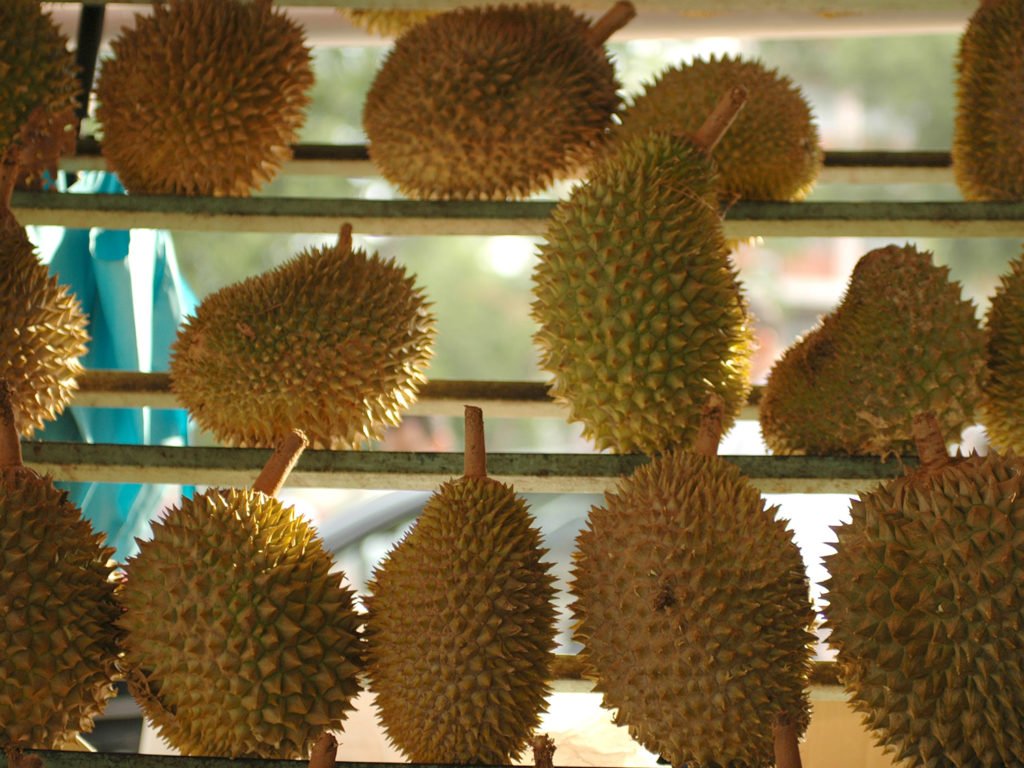
As it is a Monday, Christopher and I venture to a pasar malam at SS2 in Petaling Jaya. It is considerably bigger than the night market in Bangsar. There are many food stalls; the distinct smell of assam laska has attracted a queue of people, another crowd hovers around a stall selling shaved ice mounds drenched in coconut milk, red beans and cendol.
There is an impressive presence of durain stalls dotted about the market. Stacks of the fruit neatly lined on tables or piled high in bamboo buckets. We choose a store that is buzzing with locals and let the seller choose for us. I ask for two durians, being conservative. The man cut a small triangle in the fruit and peel back the husk to reveal a window of pulp. I pinch a bit off with my fingers and taste. It’s a strong flavour but there is a gentle bitterness with the sweet kick. Christopher tastes the other fruit and once our approval is given, both fruits are opened and packed in plastic containers. The two durians come to RM19 which is equivalent to around £3 – a bargain!
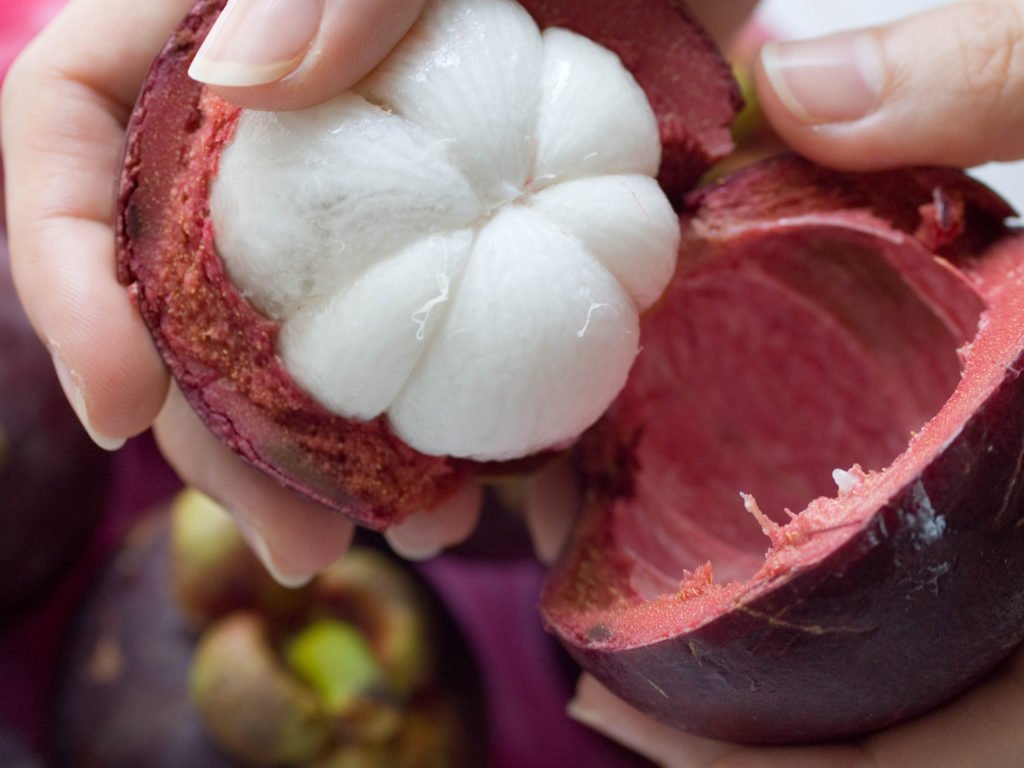
There is also an abundance of mangosteen. I go mad and buy 2kg worth, examining the round purple fruits and choosing ones that yield slightly when pressed with a thumb. Later on, I explain to Christopher they are considered to have ‘cooling’ properties and perfect with durian. I like the idea of this nature’s answer to combat the ‘heaty’ durian, like doc leaves bring relief to the sting of nettles.

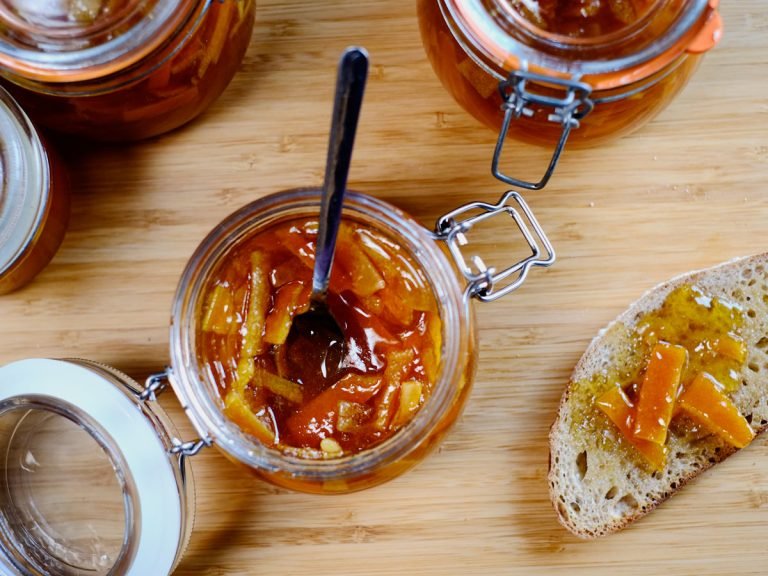
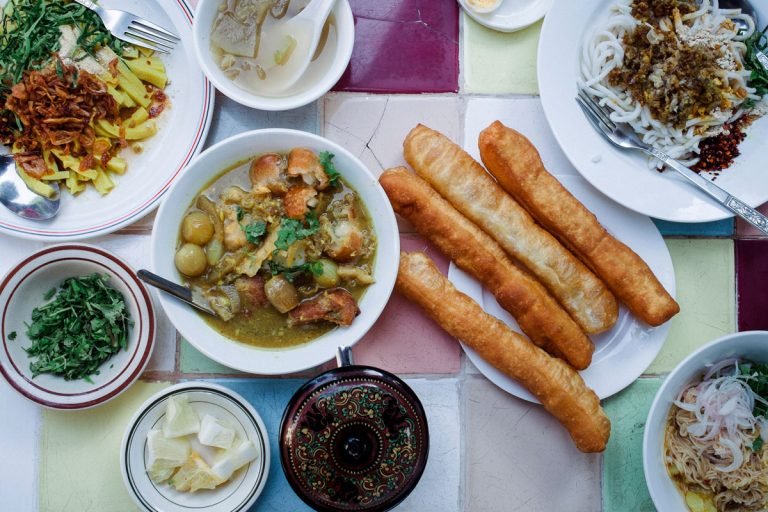
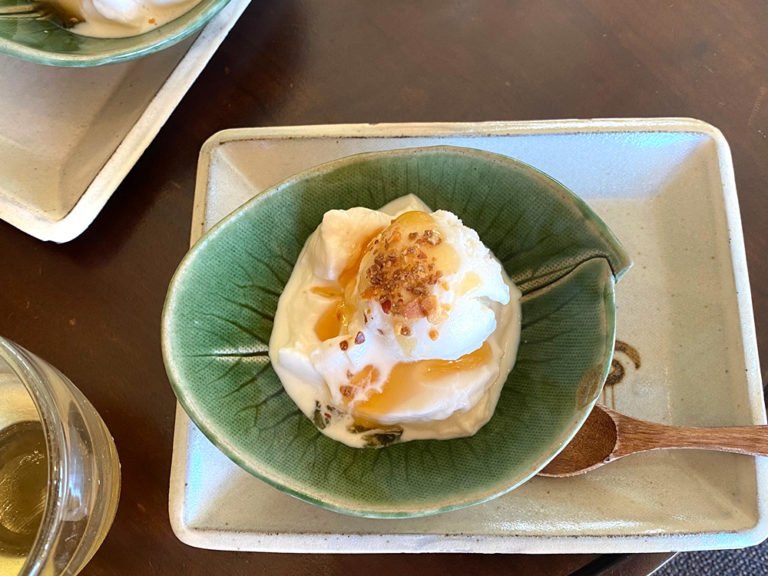

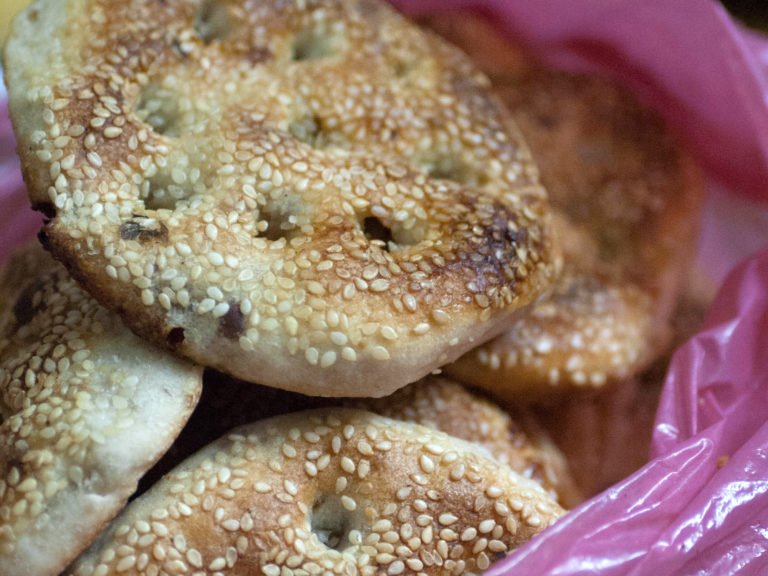
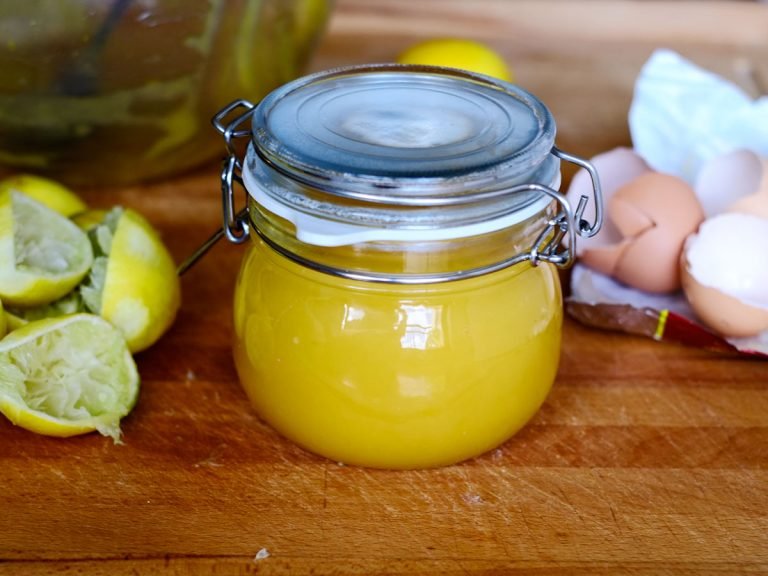
Oh! Durain, Durian. I remember I had tasted the best ones in Malaysia
durian always sweet in malaysia…why??
Durians are great in Malaysia and some are very sweet indeed. I think it depends on the variety. I usually ask for ones that have a slight bitter/sweet flavour. But it’s great fun to try the different varieties…
Check out this site which lists some varieties:
http://www.asiaexplorers.com/malaysia/penang_durian.htm
I absolutely love durian!! When I was in Melaka, I had a durian milkshake, a heavenly experience!! 🙂
Talking about durian milkshake, you just made me think of durian ice cream we ate in Penang. Really amazing… I’m being reminded by my cousins in Malaysia it’s the start of durian season again!
– Cho
oh i love mangosteen. always go mad eatin it in burma wen i visit